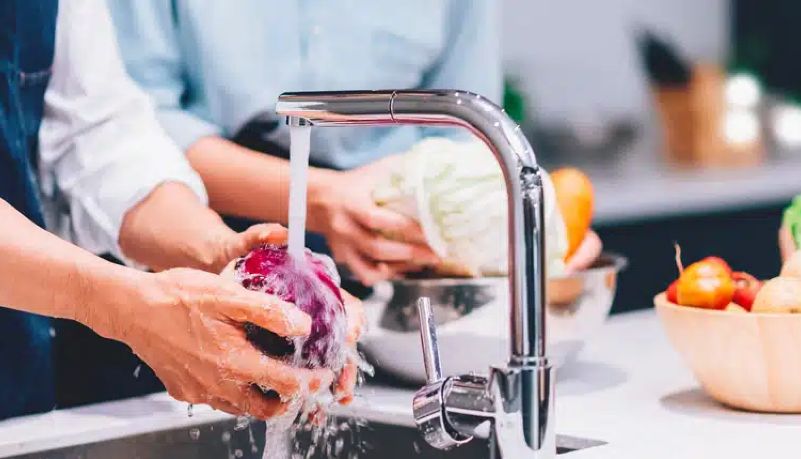
5 Simple Ways to Reduce Kitchen Stress and Boost Creativity
Stress often feels like part of the job description. “Stress is so ingrained in the culture of a kitchen,” says Jeffrey Dinmore, executive chef at Clovis Community Medical Center in California. But here’s the catch: reducing that stress can have surprising benefits. A calmer, more organized environment doesn’t just cut down on turnover—it opens the door to creativity and innovation.
As Amie Friesen, food service director at Lewistown Public Schools in Montana, points out, a less stressed team is more energized and willing to experiment with new recipes and cost-saving ideas.
Whether you run a bustling commercial kitchen or manage a school cafeteria, these five tips will help you transform chaos into calm while fostering a more creative, productive workspace. At AAA Food Handler, we believe that proper food handler training and management can make a huge difference in relieving the stress many kitchens face today.
Tackling Kitchen Stress: Strategies for a Calmer, More Efficient Work Environmen
Kitchen chaos can quickly spiral out of control if not properly managed, impacting both staff morale and productivity. By implementing thoughtful strategies, restaurant owners and managers can create a more relaxed, efficient, and harmonious work environment.
1. Plan for Time Off to Prevent Burnout
The relentless pace of a kitchen can take a serious toll on employees if they don’t have the opportunity to recharge. Amie Friesen, food service director at Lewistown Public Schools in Montana, knows this all too well. Without qualified substitutes, her team often felt pressured to show up for work even when they were sick or in need of time off, leading to exhaustion and burnout.
By cross-training staff and hiring additional team members, Friesen has made it possible for employees to take time off when needed, ensuring that the kitchen can continue running smoothly without putting unnecessary strain on individuals. For restaurant owners, investing in cross-training and scheduling flexibility can significantly lower stress levels among your staff, allowing them to recharge and perform at their best.
2. Ensure Staff Are on Board and Prepared for Kitchen chaos
Every kitchen job comes with its own set of challenges, and not every worker is prepared for the intense demands. As Jeffrey Dinmore emphasizes, part of a manager’s responsibility is to help employees understand whether they’re truly cut out for the pressures of kitchen work. Sometimes, an honest conversation can prevent future turnover by helping someone realize they may need a different role.
At AAA Food Handler, we offer comprehensive food safety and management training, equipping staff with the skills they need to handle kitchen stress with confidence. When employees feel prepared and supported, they are more likely to thrive and stay committed to their roles.
3. Lighten the Load: Buy Less
In a busy kitchen, time and energy are precious commodities. Friesen discovered that reducing bulk inventory helped her staff manage their workload more effectively. Having to constantly lift, shift, and rearrange large quantities of ingredients not only wastes valuable time but also physically exhausts employees.
By keeping inventory lean, restaurants can minimize the physical strain on workers, allowing them to focus their energy on more critical tasks like food preparation and service. This small change can significantly ease the pressure and create a more streamlined workflow.
4. Think Ahead and Be Prepared
Stress in the kitchen can often be traced back to poor planning. If staff members are left guessing about their daily tasks or find themselves scrambling to complete unexpected duties, anxiety levels rise quickly. Dinmore stresses the importance of having a solid plan for each shift. By preparing ahead of time and creating a clear schedule, you not only reduce unnecessary stress but also empower your team to work more efficiently.
At AAA Food Handler, we know that strong leadership is key to kitchen success. Our management training programs teach restaurant owners and managers how to create effective, organized work environments that leave no room for confusion or chaos. The more prepared your team feels, the less stressed they will be.
5. Embrace and Channel Kitchen Stress
While reducing stress is important, some level of pressure can be beneficial if harnessed properly. Dinmore points out that a little stress can push team members to challenge themselves, think creatively, and work efficiently. He encourages his staff to channel this energy in positive ways, such as finding new methods to improve workflow or save time.
In your kitchen, foster an environment where employees feel comfortable sharing their ideas and problem-solving. Sometimes, a simple suggestion from a team member—like cutting frozen food instead of waiting for it to thaw—can save time and effort. Encouraging collaboration and creativity not only reduces stress but can also lead to innovative improvements in your kitchen’s operation.
AAA Food Handler: Your Partner in Stress-Free Kitchen Management
At AAA Food Handler, we’ve seen how proper training and management can transform even the most hectic kitchen into a well-oiled machine. With years of experience in food safety, handler training, and restaurant management, we provide the tools and expertise you need to lead a stress-free, efficient kitchen. Whether you’re dealing with the pressures of daily operations or looking for ways to boost your team’s morale, our programs are designed to help you succeed.
By taking steps to reduce Kitchen chaos, you’re not just improving the work environment—you’re also fostering creativity, efficiency, and loyalty among your staff. These changes will pay off in happier employees, a smoother kitchen, and ultimately, better service for your customers.
